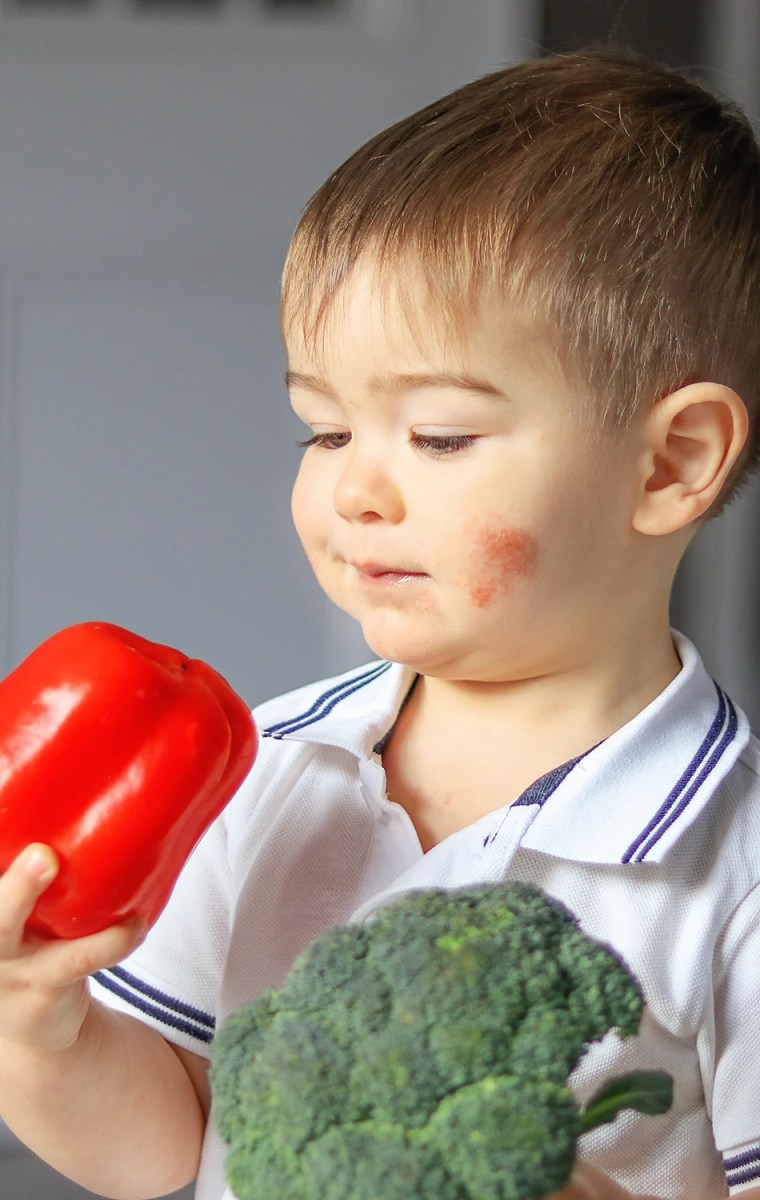Here’s What You Need To Know:
- The Subcommittee on Economic and Consumer Policy released a report showing that baby foods are tainted with dangerous levels of harmful heavy metals that endanger an infant’s neurological development and long-term brain function.
- 95% of baby food sold in the US contains heavy metals (according to a separate third party report here).
- From the time of conception through the age of 2, babies have an extremely high sensitivity to neurotoxic chemicals.
Why It Matters
Unfortunately, babies absorb heavy metals more readily than adults. Their small, developing brains and organs are more vulnerable to their negative effects.² Exposure to certain heavy metals early in life has been linked to problems with development, cognitive delays, and even behavioral issues like autism and Attention Deficit Hyperactivity Disorder (ADHD) in children and teens.³




1. What Can I Do?
You can limit your child’s exposure to potentially harmful heavy metals, like lead, mercury, cadmium, and inorganic arsenic, by choosing ingredients that operate as blockers and binders. You can also avoid foods that contain higher levels of heavy metals. Keeping processed and packaged foods to a minimum is a great first step.
2. What is the Impact?
Over 90% of parents rely on packaged convenience foods.¹ The amount of heavy metal these foods can contain is largely unregulated by the Food and Drug Administration.
Heavy metal exposure can have long-term impacts on your baby’s health and quality of life.³ For example, research has linked early childhood exposure to inorganic arsenic and lead to lower IQ scores and lower socioeconomic status in adulthood.
3. How Does It Get There?
Heavy metals turn up in our foods as a result of the soil, water, farming practices (like pesticide application), and pollution in the environment a food is grown and manufactured in. Surprisingly, organic baby and toddler foods do not contain lower levels of heavy metals, despite organic foods not being sprayed with pesticides. (4.)
4. How Can I Avoid Heavy Metals?
Avoid regularly serving infant versions of juices, packaged sweet potato or carrots, or rice based foods and snacks as these foods contain higher levels of heavy metals.⁶ Switch rice cereals and snacks for oats, barley, or other iron-fortified, whole grain options.
Aim to serve whole food snacks like fruits, vegetables, cheeses, or whole grain, homemade bars or muffins in place of processed cookies, crackers, puffs, crisps, and other snack foods packaged for babies and toddlers. If you do opt for packaged baby and toddler food products, stick with fruit and vegetable options as they are shown to contain the lowest amounts of metals.
How Big Is This Issue?
In recent testing conducted by Consumer Reports, rice cereals, and other rice- and sweet potato-based foods were found to contain higher levels of inorganic arsenic and mercury than other types of infant cereals or snacks.¹ Of the 50 infant and toddler foods Consumer Reports tested, 15 posed potential health risks to a child eating just one serving per day on a regular basis.
A separate test of 530 best-selling baby foods revealed that over 58 percent of the products tested contained cadmium, a heavy metal linked to learning disabilities and kidney damage.⁴ Snack foods like bars, cookies, crackers, crisps, and puffs were found to contain greater amounts of heavy metals than any other baby food category tested.

Summary
To be clear, consuming processed, packaged foods does not guarantee your baby will have health issues related to heavy metal exposure. There are many other factors, such as genetics, and environment (like exposure to lead paint or contaminated water), that also play a role in the impact metals have on health outcomes.
While the amount of metals in a serving of packaged food may not seem like much, when your baby is consuming a single serving, day after day, the impact of those small amounts adds up. Heavy metals accumulate in our bodies over time, and the health risks and toxins that come along with them remain in our bodies for years.
Sources
- “Heavy Metals in Baby Food: What You Need to … – Consumer Reports.” 16 Aug. 2018, https://www.consumerreports.org/food-safety/heavy-metals-in-baby-food/. Accessed 24 Aug. 2018.
- “Food safety – World Health Organization.” 31 Oct. 2017, http://www.who.int/news-room/fact-sheets/detail/food-safety. Accessed 24 Aug. 2018.
- “Association of Childhood Blood Lead Levels With Cognitive Function ….” https://jamanetwork.com/journals/JAMA/articlepdf/2613157/joi170016supp1_prod.pdf. Accessed 24 Aug. 2018.
- “Infant Formula and Baby Food – Clean Label Project.” https://www.cleanlabelproject.org/infant-formula-baby-food/. Accessed 24 Aug. 2018.
- “Rice-Based Infant Cereals Contain More Mercury Than Other Types ….” 25 Oct. 2017, https://www.consumerreports.org/food-contaminants/rice-based-infant-cereals-contain-more-mercury-than-other-types/. Accessed 24 Aug. 2018.
- “Lead in food: A hidden health threat | Environmental Defense Fund.” 15 Jun. 2017, https://www.edf.org/health/lead-food-hidden-health-threat. Accessed 24 Aug. 2018.












